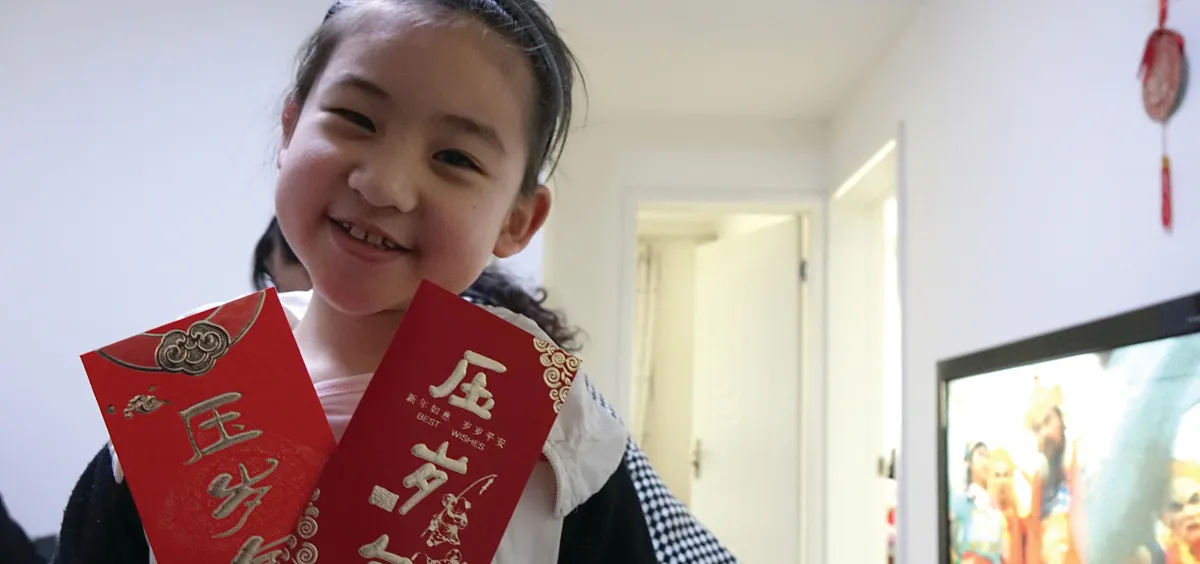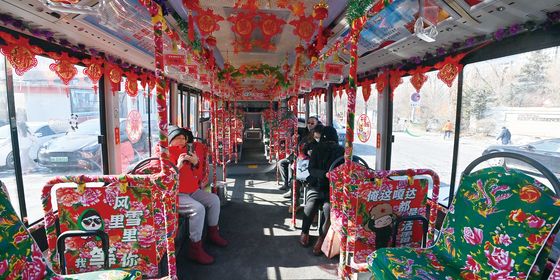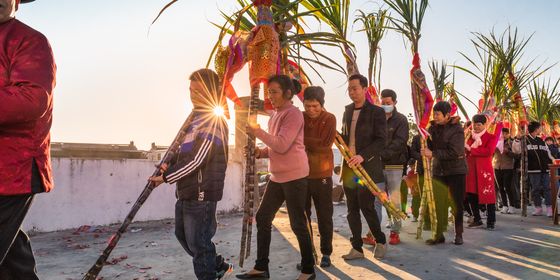Inflation and graft mar this year’s Spring Festival cheers
Money and extended family reunions rarely mix. A February lawsuit by a Yunnan university student, asking her parents to return 58,000 RMB’s worth of New Year hongbao money that they’ve “safeguarded” throughout her childhood, highlighted problems with the Spring Festival custom.
According to official sources, the girl’s parents got divorced in 2010, and neither has been paying her the tuition fees and living expenses. The fact that the desperate student decided to sue for hongbao rather than her actual school expenses, though, is significant.
Traditionally, hongbao symbolizes senior family members’ love and sense of responsibility toward their juniors. During the Lunar New Year celebrations, members of the extended family (all married or working adults, depending on region) are obligated to hand out cash to unmarried members of the generation below. The money is stuffed into a red envelope, the actual hongbao, to symbolizes good luck and ward off evil spirits.
In more recent years, though, hongbao has become one of many avenues for Chinese conspicuous consumption. This year, according to a report released by a personal finance app Wacai, Fujian province took the crown in competitive hongbao-giving, with each envelope containing 3,500 RMB on average. Zhejiang (3,100RMB) and Beijing (2,900RMB) came in second and third. Guangdong came last, with 50 RMB per envelope, a fact that pleases many Cantonese who see themselves as the last bastion of hongbao sanity in China. “We receive the least, but we give [to] the most [relatives],” one netizen commented, pointing out it’s also the local custom to honor elders with hongbao. “Cantonese are the most filial, most generous people in China,” boasted a Guangzhou Daily web headline.
Hongbao graft is also a problem. The case of the Yunnan student hinged on parents habit of appropriating these extravagant cash gifts in the name of “guarding” the money for those too young to handle it. Opinions on the issue are divided: lawyer Huang Cheng told The Paper that legally, gifts are property of the recipient. However, another lawyer surnamed Chen proposed that this argument shouldn’t apply to underage children, and that adults suing for money owed to them as children contradict the “public order and good customs” of Chinese society.
Judges appeared to agree. The court ordered the parents to give 1,500 RMB per month to their daughter until she graduates, but dismissed hongbao from the issue. Netizens also pointed out that hongbao was just reciprocity between adults, who give one another’s children increasingly higher amounts to present “face.” While neither hongbao inflation nor graft is illegal (yet), authorities are cracking down on wasteful envelope-giving among public servants, on occasions such as weddings of government officials’ children or employee banquets—will that dampen the holiday spirit, or help save it?
Pushing the Envelope is a story from our issue, “The Noughty Nineties.” To read the entire issue, become a subscriber and receive the full magazine.












